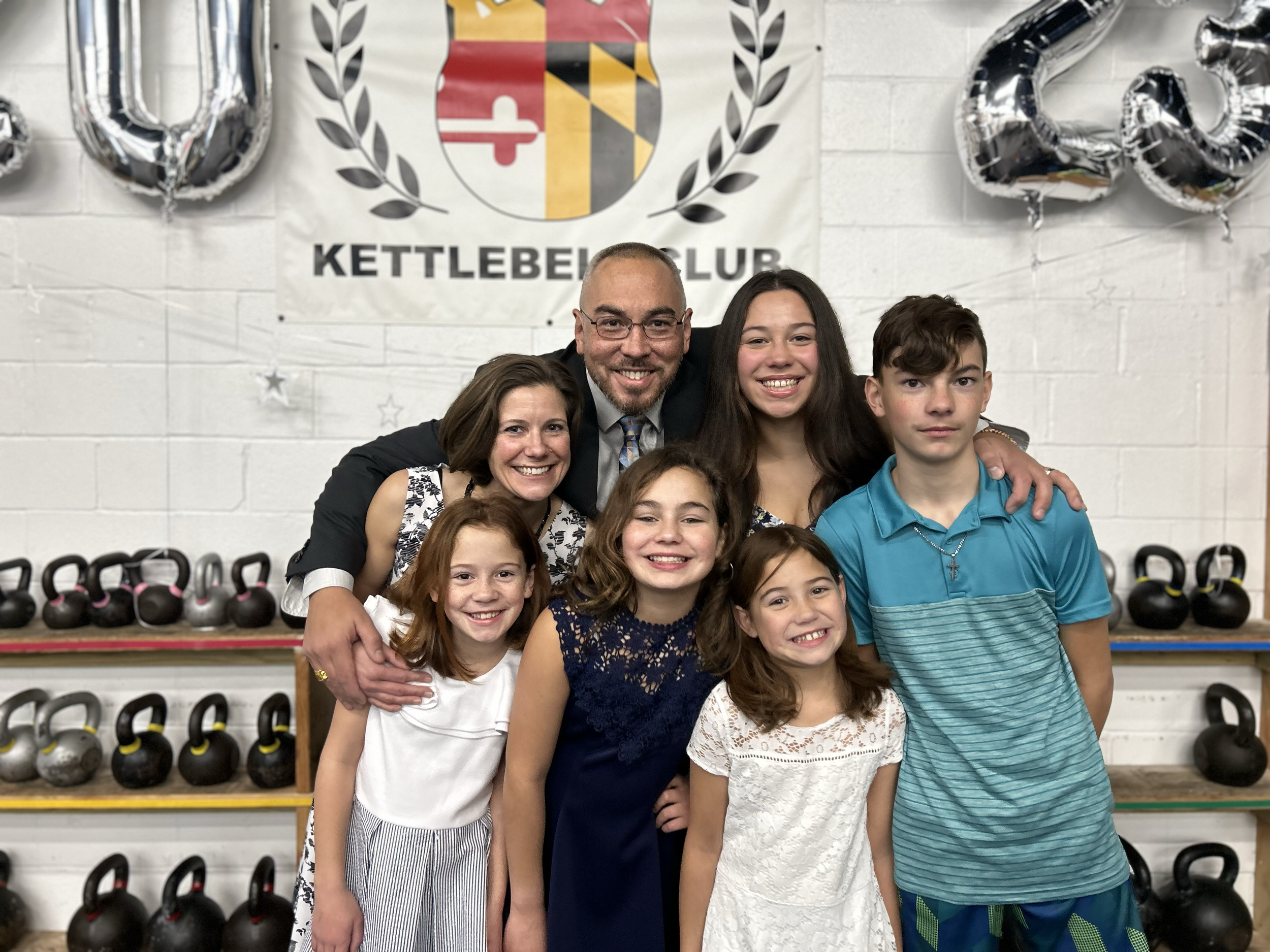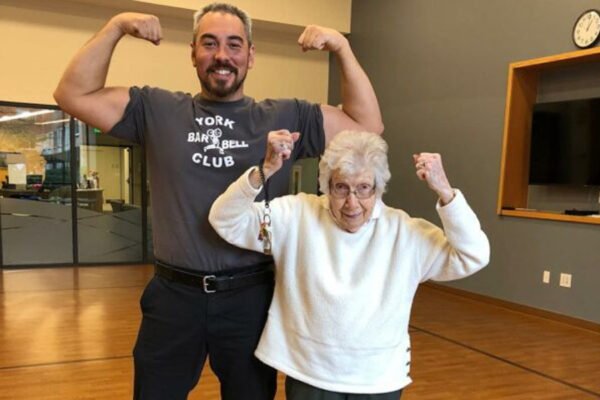Attitude on Aging
Christmas 2013
New Years 2023
I’ve been thinking a lot about aging lately. Maybe it’s because I’m watching my kids grow up so fast, or maybe it’s because I see more gray hair on my body and less hair on my head. Either way, it’s made me reflect on what it really means to get older — and more importantly, how we think about getting older.
Here’s the thing: getting older is better than the alternative. That’s not just a clever saying. It’s the truth.
The longer we live, the more opportunities we have to learn, to grow, to love, to lift, and to make an impact. Sure, our bodies change, recovery takes longer, and we can’t party like we did in our twenties. But that doesn’t mean life is on the decline. Far from it. Aging can be a privilege — if we approach it with the right attitude.
The Mindset That Makes All the Difference
Most people talk about aging like it’s a disease. “I’m too old for that.” “My back hurts because I’m getting older.” “Just wait until you hit forty, fifty, sixty…”
You’ve heard it all before. Maybe you’ve even said it yourself.
But let me ask you — is it really because of age, or is it because of attitude?
There’s a big difference between the two. The number of years you’ve been alive doesn’t determine your quality of life. What does is how you think about those years. If you tell yourself you’re “over the hill,” your body will believe it. If you think decline is inevitable, you’ll start to live that way — sitting more, moving less, giving up on the things that keep you feeling young and strong.
Our thoughts become things. The stories we tell ourselves shape our reality.
That’s why having a positive attitude about aging isn’t just feel-good talk — it’s a powerful tool for staying healthy and happy.
Movement is Medicine
Let’s start with the obvious: exercise is one of the best ways to fight the negative effects of aging.
Strength training, in particular, is the closest thing we have to a fountain of youth. When you lift heavy (safely and consistently), you maintain muscle mass, strengthen your bones, improve balance, and boost your metabolism. Those are the very things that most people lose as they get older — but they’re not lost forever. They’re just waiting to be trained.
I’ve trained people in their 20s, 40s, 60s, even 80s, and the pattern is clear: the ones who keep moving, keep improving. I’ve seen a 70-year-old hit their first pull-up. I’ve seen grandparents learning kettlebell swings. I’ve seen people turn back the clock through sheer consistency and belief.
The body adapts to what you demand of it. If you demand strength, it will get stronger. If you demand nothing, it will give you nothing. Aging doesn’t stop that process — giving up does.
So don’t give up. Keep training. Keep moving. Keep challenging yourself.
It doesn’t have to be world records or PRs (though if that’s your goal, go for it). It just has to be work. Because motion is life.
Fuel for the Long Game
Exercise alone isn’t enough. You can’t out-train a bad diet, and you definitely can’t out-train a decade of neglect. What you put in your body matters more than ever as you age.
Think of food as fuel, not filler.
Whole, nutrient-dense foods. Plenty of protein. Lots of water. Less processed junk.
You don’t have to eat like a monk, but you do have to eat with intention.
When you’re younger, you can get away with pizza and beer on a regular basis. When you’re older, your body keeps score. Every meal is either a deposit or a withdrawal from your health account. Make more deposits.
That doesn’t mean you can’t enjoy yourself. Have the occasional indulgence. Celebrate birthdays, holidays, and milestones. Just don’t make “treats” the baseline. Because the older we get, the more what we don’t eat becomes just as important as what we do.
The Company You Keep
Roni, Carole Ann, Michelle
Aging well isn’t just about muscles and macros — it’s about mindset and community.
We’re social creatures. We need connection.
One of the biggest predictors of long-term health (and happiness) isn’t genetics or even diet — it’s relationships. Studies show that people who stay socially connected live longer, feel better, and recover faster from setbacks. Having a strong network of family, friends, or even training partners keeps your spirit alive.
That’s one of the things I love about Baltimore Kettlebell Club. It’s not just a gym — it’s a tribe. We sweat together, we push each other, we celebrate progress, and we lift each other up, literally and figuratively. That’s the kind of energy that keeps you young.
If you surround yourself with people who complain about getting old, you’ll start to do the same. But if you surround yourself with people who defy the stereotype, who still chase goals and challenge limits, that’s contagious. You start to believe you can do it too — and you can.
Age Is a Privilege, Not a Punishment
Mrs. Railey 100 years old
Let’s be honest: not everyone gets the chance to grow old.
We’ve all lost people who didn’t get that opportunity. So every birthday, every candle, every wrinkle, every gray hair — those are signs that you’re still here. You’ve got more lessons to teach, more experiences to live, more love to give.
You can choose to see aging as a decline, or you can see it as an evolution.
Maybe your priorities shift. Maybe you’re not chasing the same kind of strength you did in your 20s. But you’re chasing something — wisdom, balance, resilience, legacy. That’s real strength.
When I think about aging now, I think about earning every year. Earning it by training hard, eating well, being present for my family, and keeping my mind sharp. Every day I get older, but I also get better — or at least, that’s the goal.
Don’t Let the Calendar Define You
There’s no rule that says you have to slow down just because you’ve hit a certain age. The calendar doesn’t control your capability.
I’ve seen people in their 50s do things they couldn’t do in their 30s — run marathons, learn handstands, build businesses, reinvent themselves entirely. The reason? They decided not to let “age” be an excuse. They took control of what they could control — their habits, their effort, their mindset.
Aging well isn’t about pretending you’re 25 forever. It’s about becoming the best version of yourself at every stage.
Yes, you’ll have to warm up longer. Yes, you’ll have to recover smarter. And yes, you’ll have to pay more attention to how you move and how you feel. But those are signs of maturity, not weakness. You’re not getting old — you’re getting wise.
Your Attitude Determines Your Altitude
At the end of the day your attitude determines how you experience aging.
If you wake up every day dreading your aches and pains, that’s what you’ll focus on. But if you wake up grateful to still be here, with another shot to move, learn, love, and grow — you’ll live differently. You’ll carry yourself differently. You’ll attract better energy.
There’s power in how you speak to yourself. Stop saying “I’m getting old.” Start saying, “I’m getting better.” Because in many ways, you are. You’re wiser, more patient, more self-aware. You’ve been through some things and come out stronger. That’s something the younger version of you couldn’t say.
Keep Moving Forward
No matter where you are in life — whether you’re 25 or 75 — you still have the ability to improve. You still have choices. You still have influence over your health and happiness.
Age isn’t a finish line. It’s just a number that counts how long you’ve been in the game. And as long as you’re still in it, you can keep leveling up.
So lift the weights. Eat the good food. Spend time with people who make you laugh. Learn something new. Help someone else. Keep your mind and body engaged.
And most of all — be grateful. Because getting older isn’t something to fear.
It’s something to earn.
Getting older is better than the alternative.
So do it with strength, grace, and gratitude.
Because attitude on aging? That’s everything.





